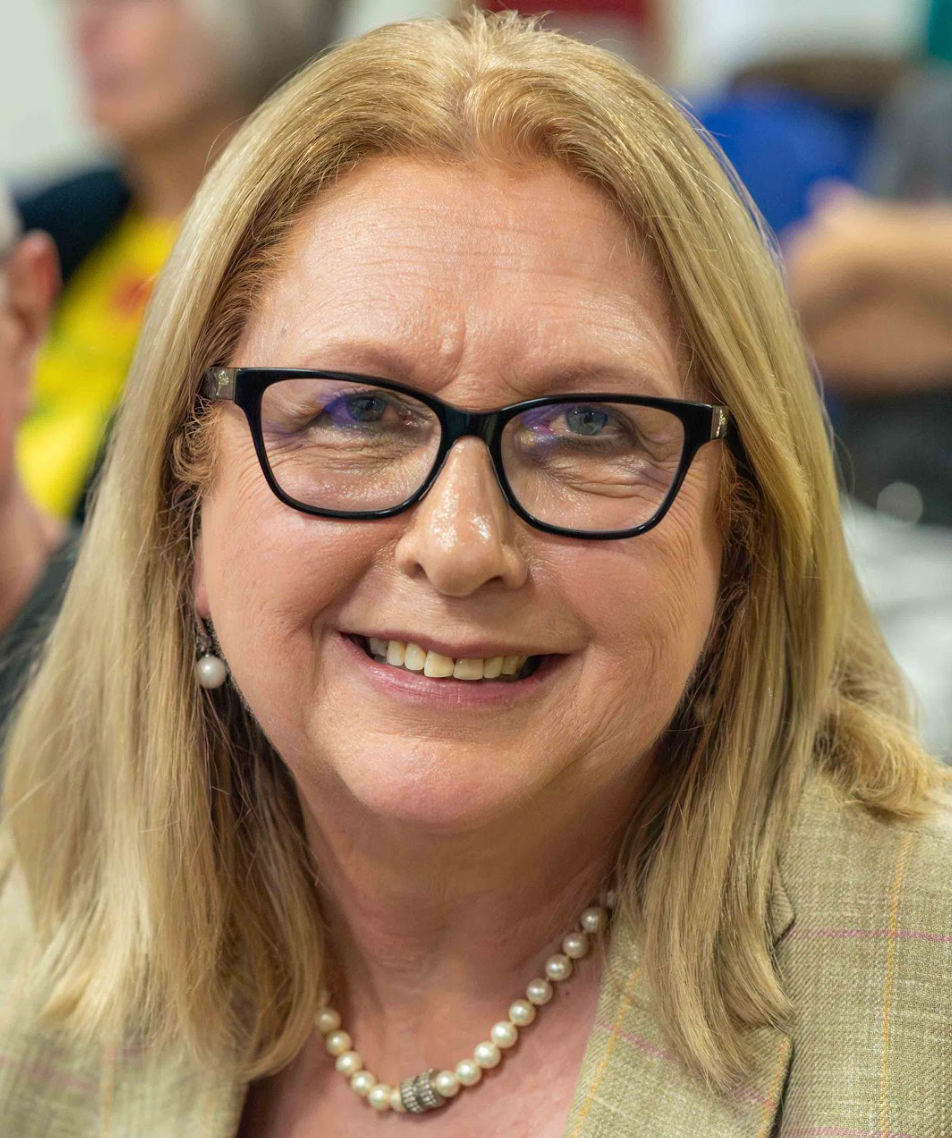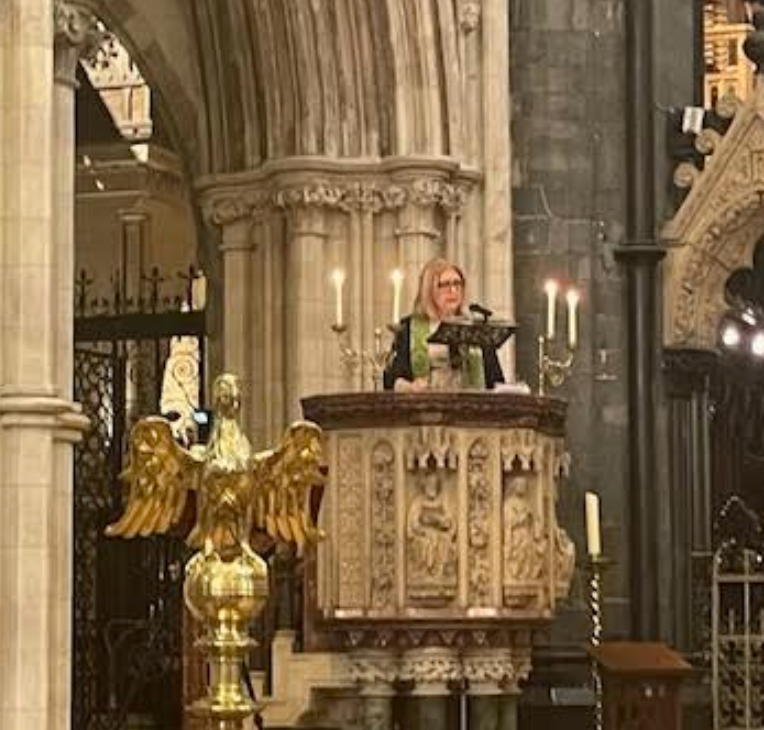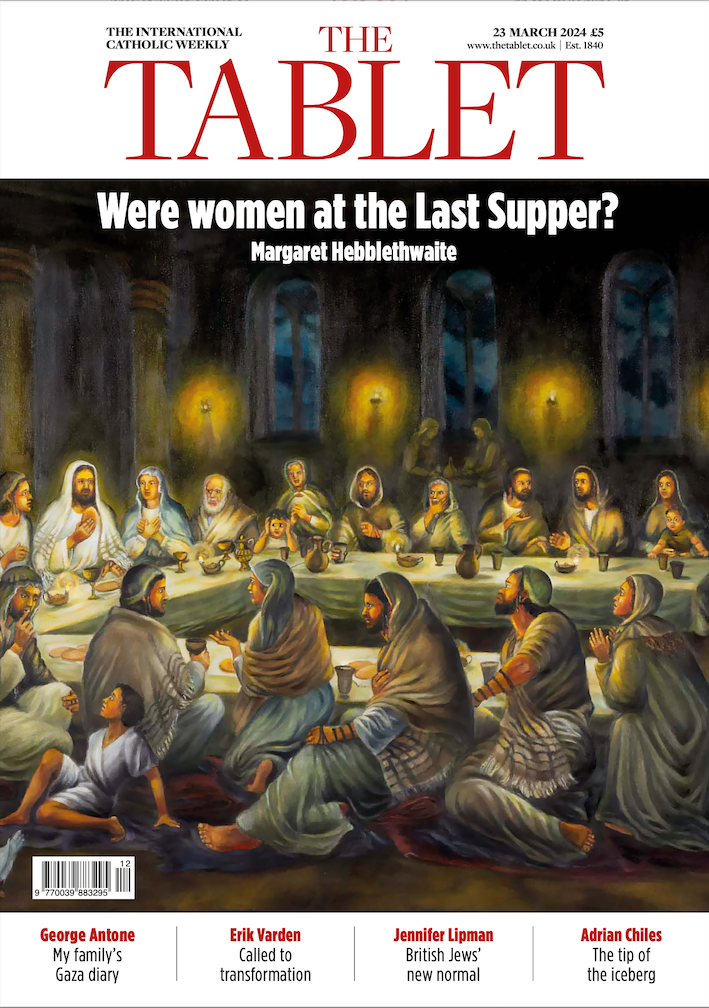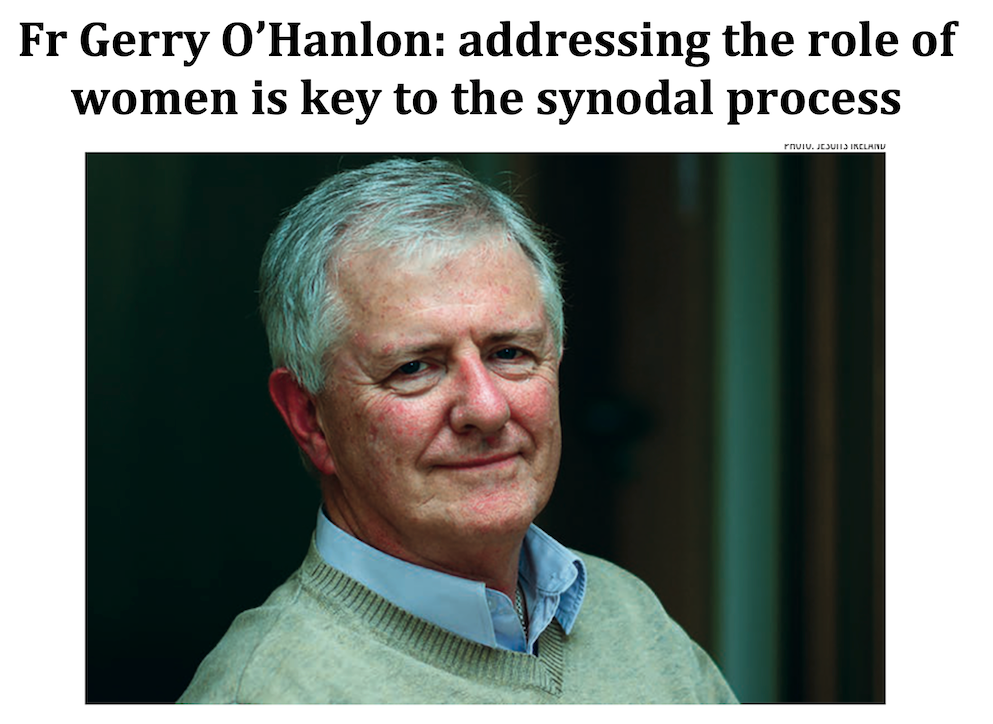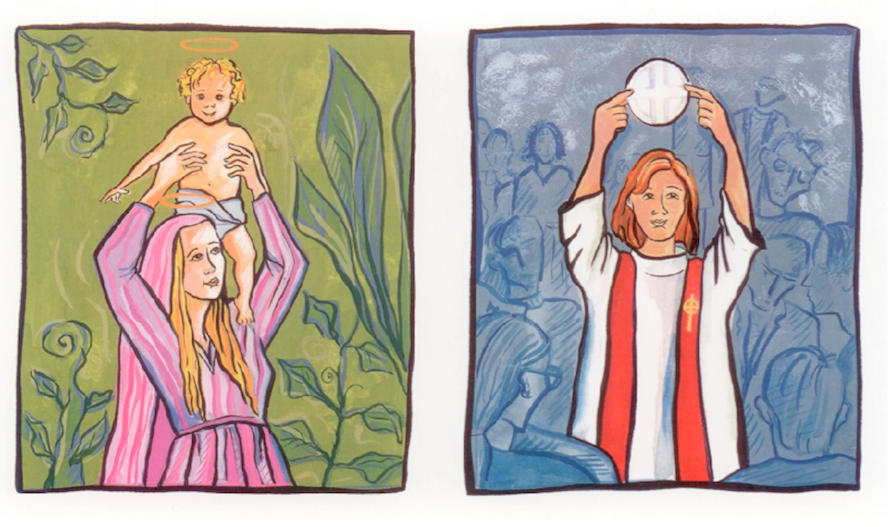Killala leads the Synodal Way
Killala’s Synodal Journey
The Synodal Times 1 September 2023
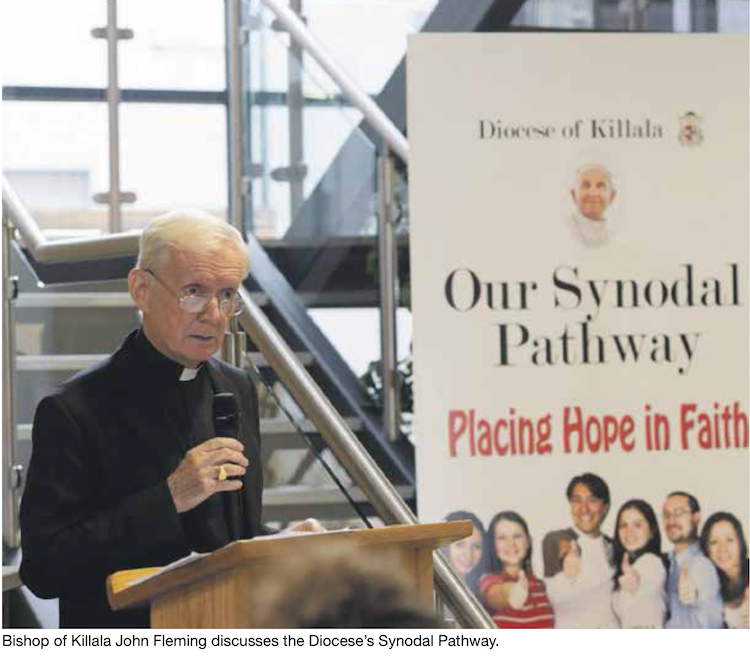
Killala’s Synodal Journey
Compiled by Anne Sweeney, Patricia Melvin and Peter McLoughlinSurvey
The Steering Group decided that a survey should be undertaken in every parish to elicit the opinion of the people and that its results should be voted on in a diocesan gathering or assembly. It was agreed that the survey would have to be anonymous and confidential, if we were to find out what people really thought.
The seven open-ended questions were:
1. Where, in your everyday life, do you experience love, truth, goodness, hope and joy?
2. What is it that encourages you to participate in the life of your local church/parish?
3. What is it you find difficult about participating in the life of your local church/parish?
4. As a Church, what are the biggest questions we face?
5. What do we need to do now?
6. What do we need to stop doing now?
7. What topics would you recommend for the upcoming Diocesan Assembly?
An independent institute was commissioned to process and analyse the findings. In June, their report was sifted into 129 proposals under 14 areas of inter- est – in no particular order: 1. Family 2. Youth 3. Women in the Church 4. Lay Participation 5. Management of parishes 6. Child Safeguarding 7. Education in the Faith 8. Pastoral Care & Priests 9. Vocations 10. Prayer 11. Liturgy 12. Deacons 13. Inclusion.
Diocesan Assembly
After the survey results were processed we had a list of 129 proposals which represented the views of the people on what needed to happen in 14 different categories.
Among the general principles voted on by the assembly were:
That a listening ethos be given an on-going and structured status in the diocese allowing for a respectful platform to the voice of the people - For 89% Against 11%
That transparency, inclusivity and consensus be accepted as foundation stones in diocesan and parish policies and con- cerns - For 91% Against 9%
That the role of the Church in bringing the community together be respected through community-building initiatives organised by PPCs - For 91% Against 9%
The How? question
The next question was to deter- mine how that implementation would take place.
Ten Focus Groups were established involving a total of 120 people who addressed this question.
Among the questions addressed by the Focus Groups were: (i) is this proposal achievable? (ii) What can be done? (iii) How can we go about doing it? (iv) What has it going for it? (v) What (and who) are the obstacles to making it happen? (vi) Is there any background preparation we need to make? (vii) Do we need to get any more information? (viii) Are there aspects we need to examine in more detail?
In January 2020, an Implementation Committee was appointed to encourage, supervise, co-ordinate and resource the imple- mentation of the 72 proposals and the committee elected three lay people as leaders – Anne Sweeney, Patricia Melvin and Peter McLoughlin.
Two items were placed on the agenda: (i) the election of new Parish Pastoral Councils (PPCs) and (ii) the introduction of Children’s Masses.
The election of new PPCs was completed in 2022, a schedule of training workshops was organised in every parish and the new members of the 22 PPCs were commissioned by Bishop Fleming at the Chrism Mass during Holy Week, 2022.
In November 2022, at a meeting in Ballina of the collected members of the 22 PPCs, the leaders of Placing Hope in Faith (PHIF), presented a plan to devise four new forms of lay commitment that dovetail with the growing challenge of the decline in priest numbers – estimated as a possible 8 priests for the 22 Killala parishes by 2027.
These are:
1. Bringing Communion to the sick and house-bound, a task up to now carried out by the priests – in effect improv-
ing the service which priests will progressively struggle to maintain;
2. A visitation programme that will seek to respond to the needs of those living alone or isolated for whatever reason;
3. Lay-led liturgies – as providing daily Mass becomes difficult and sometimes impossible, services of reflection on the Scriptures and the distribution of Communion will be led by laymen and women in the absence of a priest;
4. An accompanying programme will train lay Catholics, women and men, to support the priest in specific ceremonies and will in time substitute for the absence of the priest.
Certificate in Lay
Leadership: Theology,
Culture and Ministry
In response to the expressed desire of parishioners throughout the PHIF process for training and formation, a two-year course, courtesy of the Newman Institute, has been devised to instruct and train volunteers for service in the above four lay commitments. 67 participants have completed their first module.
Lessons
A number of conclusions can be drawn from the Killala experience to date. One is that, while for the Catholic Church in Ireland, on most indicators, the graph is going in the wrong direction, there’s still a huge commitment on the part of a significant number of lay people to value and support the work of the Church, not least among young parents for whom a faith-life is important, who value a sense of God and want their children to value it too.
This was evident in the interest and enthusiasm for the Diocesan Assembly and the response of the 300-plusdelegates from the twenty-two parishes of the diocese, as well as the relative ease with which 120 volunteers were attracted towards participation in the ten focus groups.
The important message is that there is a real hunger for a Church based on synodality (or the Synodal pathway) which Pope Francis continuously underlines. While many within the Church remain unconvinced of the need for synodality, most Catholics recognise that it’s being taken seriously – though many remain to be convinced.
An instance of that trust and the honesty that ensued was evident in the delegates’ response to some of the issues beyond the diocese’s capacity to implement but on which they registered their opinions:
• That priests be allowed to marry: agree 85%, disagree: 1%;
• That priests who have married return to active ministry: agree 81%, disagree: 19%;
• That women be ordained to the diaconate: agree 80%, disagree: 20%;
• That women be ordained to the priesthood: 69%, disagree: 31%;
• That the Church’s teaching on homosexuality and those excluded from the Church be changed to reflect the inclusion of all people regardless of sexual orientation, marital status or family status: agree: 86%, disagree: 14%.
To make another beginning, a number of constituent elements seems vital:
• Change has to be acknowledged and accepted as a permanent condition, allowing for the development of Doctrine despite the fact that tradition, continuity, heritage remain important influences.
• The future of the Catholic Church in Ireland depends primarily on empowering Lay Catholics and all who see the Synodal Pathway with its emphasis on attentive listening to all voices and a journeying together that is ‘real, respectful and transparent’.
• Moving towards a Synodal Pathway means accepting the cultural imperative that the pre-Vatican ‘pyramid’ model of Church is no longer fit for purpose and its clericalist
and patriarchal ethos are, in today’s culture, a counter-sign to Gospel values.
• There is a genuine thirst for meaning among those for whom faith in God as mediated by our Church seems impossibly remote from the lived reality of their lives.
• We need to learn ‘to live in the grey’, to recognise the reality of variety, complexity and ambivalence in the lives of many Catholics today – faith, for many, possibly for most, is not ‘simple’.
• Across the wide spectrum of belief and unbelief, there needs to be respect and reverence for the individual journey.






